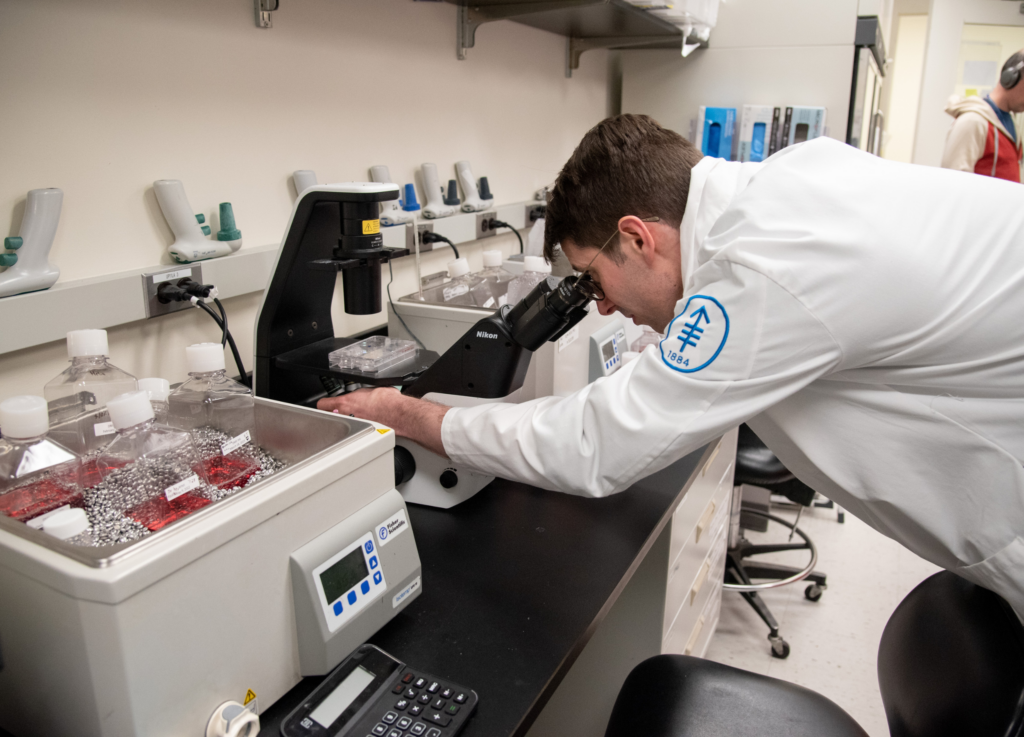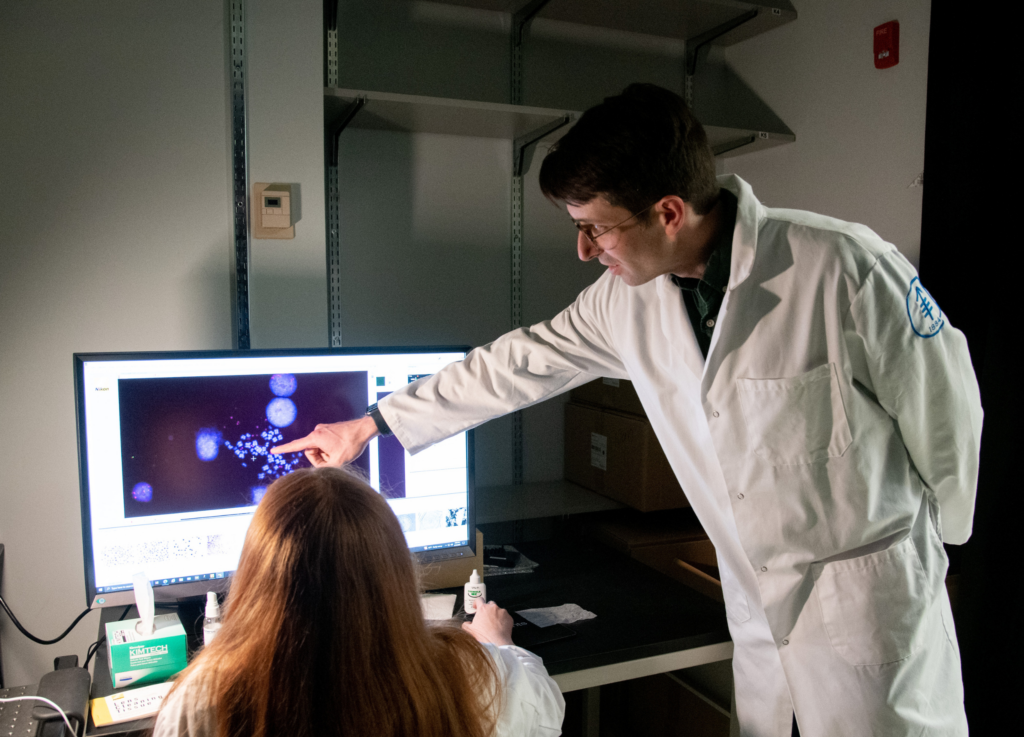John Maciejowski, PhD ‹ Back To 2023 Winners
2023 Winners
Assistant Member
Molecular Biology Program
Memorial Sloan Kettering Cancer Center
Vision
My lab wants to understand how innate immune defenses against pathogens operate within cancer cells. These efforts may lead to insights into how cancer-associated dysfunctions promote genomic instability and influence anti-tumor immunity. Our ultimate goals are to obtain fundamental insights into cancer genome evolution and extend the reach of immunotherapies.
John Maciejowski, PhD is an Assistant Member in the Molecular Biology Program at Memorial Sloan Kettering Cancer Center. Research in the Maciejowski lab focuses on understanding how innate immune defenses impact cancer genome integrity and anti-tumor immunity. Dr. Maciejowski started his lab in 2017 after performing postdoctoral work with Dr. Titia de Lange at Rockefeller University. While in the de Lange lab, Dr. Maciejowski discovered that fused chromosomes can survive cell division intact ultimately giving rise to clustered mutations that resembled patterns often found in cancer genomes. Dr. Maciejowski performed his doctoral studies as part of the inaugural class at the Gerstner Sloan Kettering Graduate School of Biomedical Sciences. One current focus of the Maciejowski lab is to understand the roles of the antiviral APOBEC3 deaminases in cancer genome evolution. Parallel work in the lab investigates how nuclear envelope instability at nuclear atypia like micronuclei causes DNA damage and pro-inflammatory immune responses. His lab develops and applies cell models to understand how tumor intrinsic processes provoke antiviral innate immune responses. Dr. Maciejowski is a Frank A. Howard Scholar, Pew Biomedical Scholar, and recipient of the Regeneron Prize for Creative Innovation.
Mechanisms and Consequences of Episodic A3A Activity in Human Cancer Cells

Cancer is considered to be a disease of the genome because the acquisition of genomic alterations spurs disease progression by disrupting natural checks on cell growth and behavior. These alterations can result from exposure to environmental factors, such as UV light or tobacco carcinogens, as well as internal biological processes. We have recently discovered that one of the most common alterations detected in cancer genomes are mutations caused by our endogenous A3A enzyme, which normally protects against viral infection by introducing mutations in viral genomes. Although most models assume that cancer mutations accumulate in a linear progression, our data suggested that A3A may operate in an unexpected manner by causing mutations in episodic bursts.
“The Pershing Square Sohn Prize gives us the opportunity to understand how antiviral mutator enzymes are being weaponized by cancer cells to mutate chromosomal DNA.”

We arrived at these discoveries by developing an innovative, experimentally amenable set of cancer cell line models that recapitulate A3A mutagenesis in human cancers. Our main goals in this application are (1) To measure the extent of genomic damage that occurs during A3A bursting; (2) To identify the factors that provoke A3A to attack our own genome; (3) To uncover additional genome alterations caused by bursting A3A activity. The application is organized around the central hypothesis that intermittent dysfunctions inherent to many cancer cells drive transient A3A expression leading to extensive mutagenic bursting that ceases when the underlying dysfunction is resolved. We expect that completion of this work may uncover a new paradigm of genome instability in cancer where cancer-associated dysfunctions drive tumor heterogeneity by causing bursts of mutation driven by endogenous enzymatic activities.
“Innovation is the identification of technical solutions to solve long-standing, intractable problems and the ability to recognize when
established scientific concepts are being pushed by poor assumptions.”